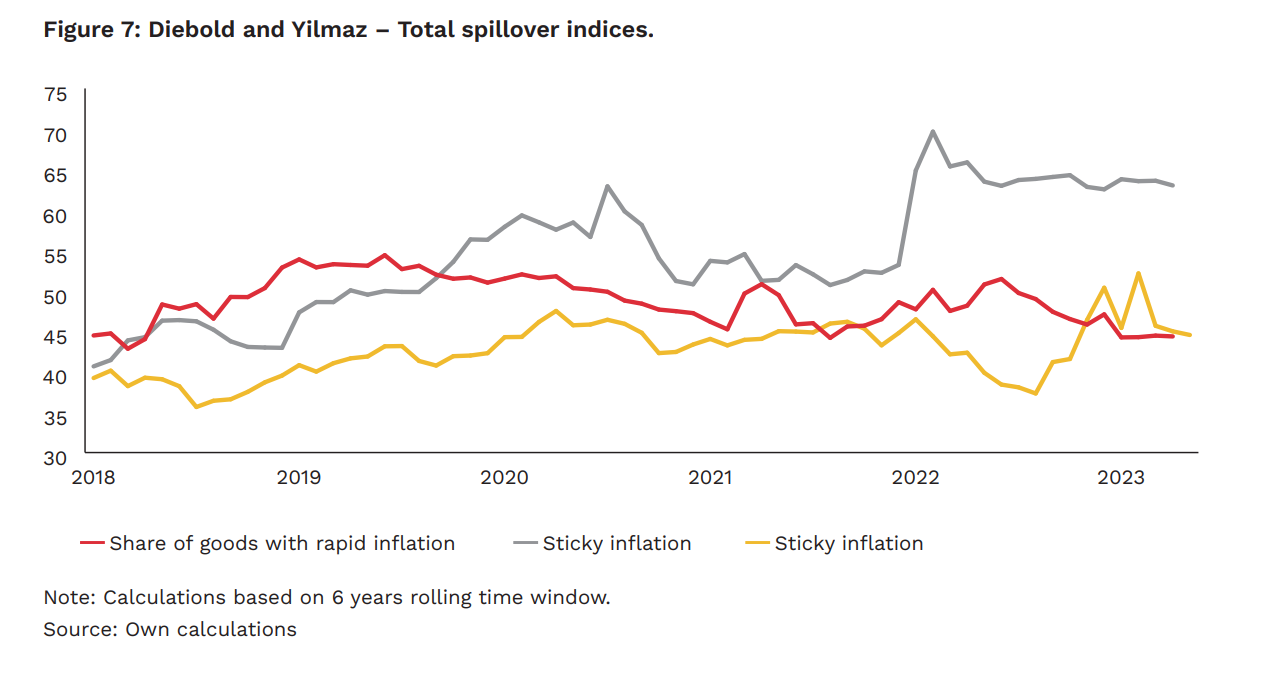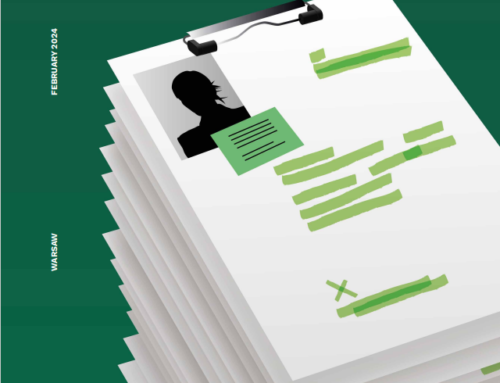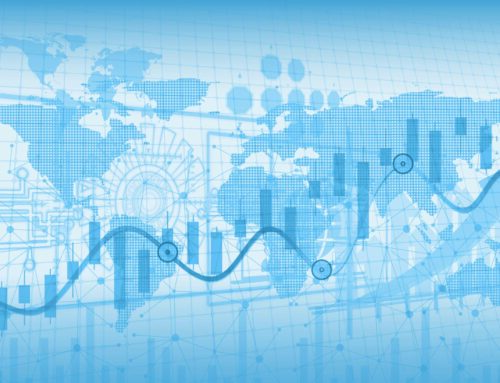Combating inflation will be a long-process
Published: 28/08/2023
The year 2022 was dominated by the Russian invasion on Ukraine and the rising inflation after the outbreak of the energy crisis. Since then inflation persists in the countries that the price spillovers originated from. The inflation of sticky prices increased more slowly than that of more flexible ones right after the energy crisis. This distorts the relative prices and probably requires another wave of adjustments in the stickiest categories. Polish Economic Institute in the report “The false start of disinflation – evidence from the major European economies” analyses the international risks related to inflation after the outbreak of the energy crisis in 2022.
This paper has examined the potential channels of inflation spillovers between EU’s largest countries. Although the cross-country transmission of rapidly increasing prices is rather moderate, the countries that are transmitter still experience the more widespread inflation, which suggests the risk of higher inflation in the Eurozone as a whole. The spillovers in the sticky prices seem to increase with a higher magnitude of prices increases. This remains an important channel that could prolong the period of high inflation.
“Overall, the magnitude of inflation spillovers between countries increased after the energy crisis. Again, the Diebold and Yilmaz framework suggests that the biggest impact is visible in the case of sticky prices. This phenomenon shows one reason why predictions obtained using standard modeling frameworks such as the Philips curve, which were based on data from a period of low inflation, undershoot the actual increase in prices” – says Jakub Rybacki, head of the macroeconomics team in PEI.

Additional risks are linked to wage increases. Our framework shows little interconnectedness between the situation on the labour market in the Eurozone countries. Still, the spillover increases during periods of perturbations. The Netherlands emerges as a transmitter, systematically preceding certain tendencies that can be seen in other countries. Given the heightened wave of wage-realted strikes there, we see wage-led inflation as an important factor that could prolong the period of higher inflation.
***
The Polish Economic Institute is a public economic think-tank dating back to 1928. Its research primarily spans macroeconomics, energy and climate, the world economy, economic foresight, the digital economy and behavioural economics. The Institute provides reports, analyses and recommendations for key areas of the economy and social life in Poland, taking into account the international situation.
Media contact:
Ewa Balicka-Sawiak
Press Spokesperson
T: +48 727 427 918
E: ewa.balicka@pie.net.pl
Category: Macroeconomics / Report / Reports 2023





